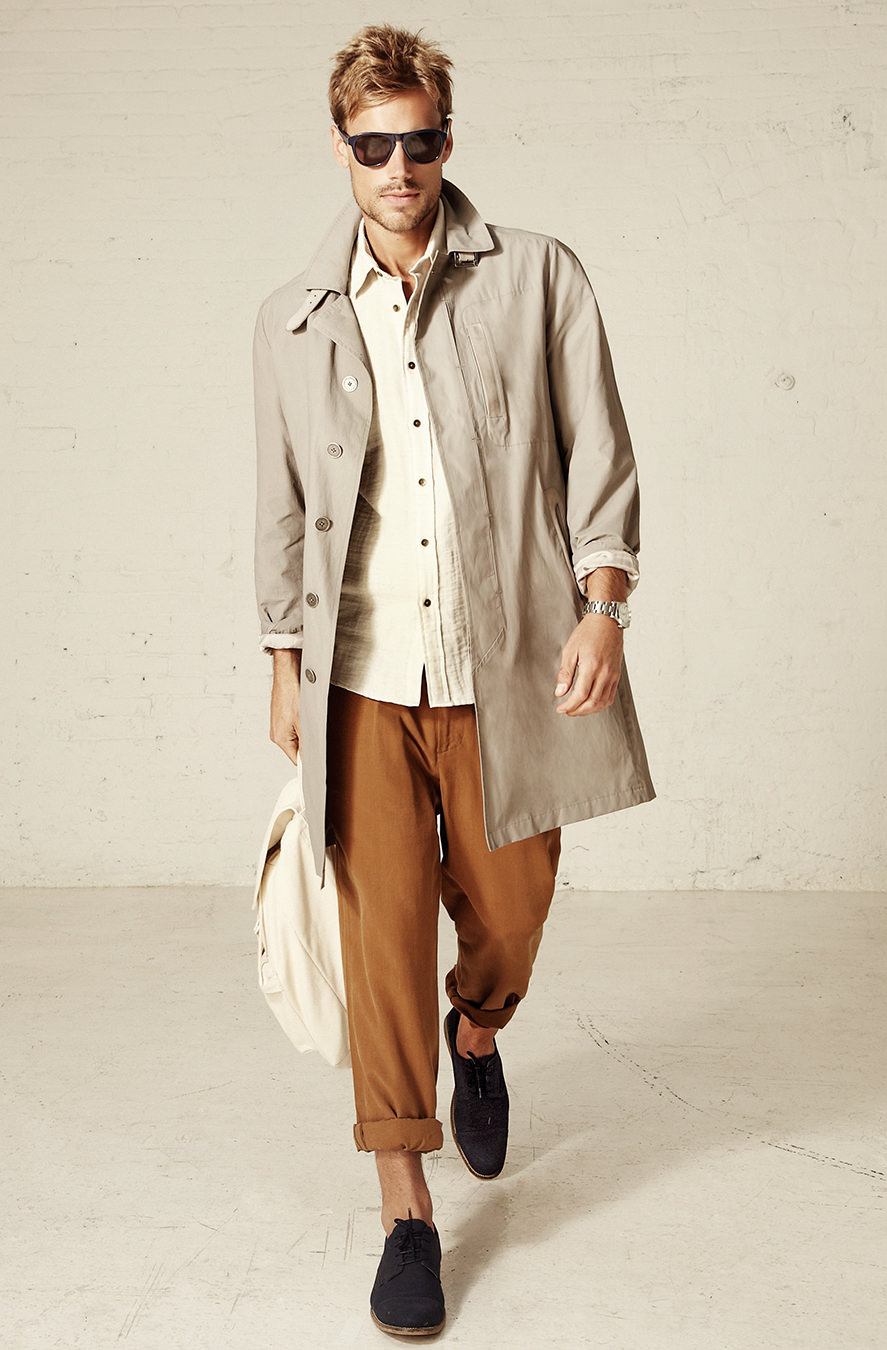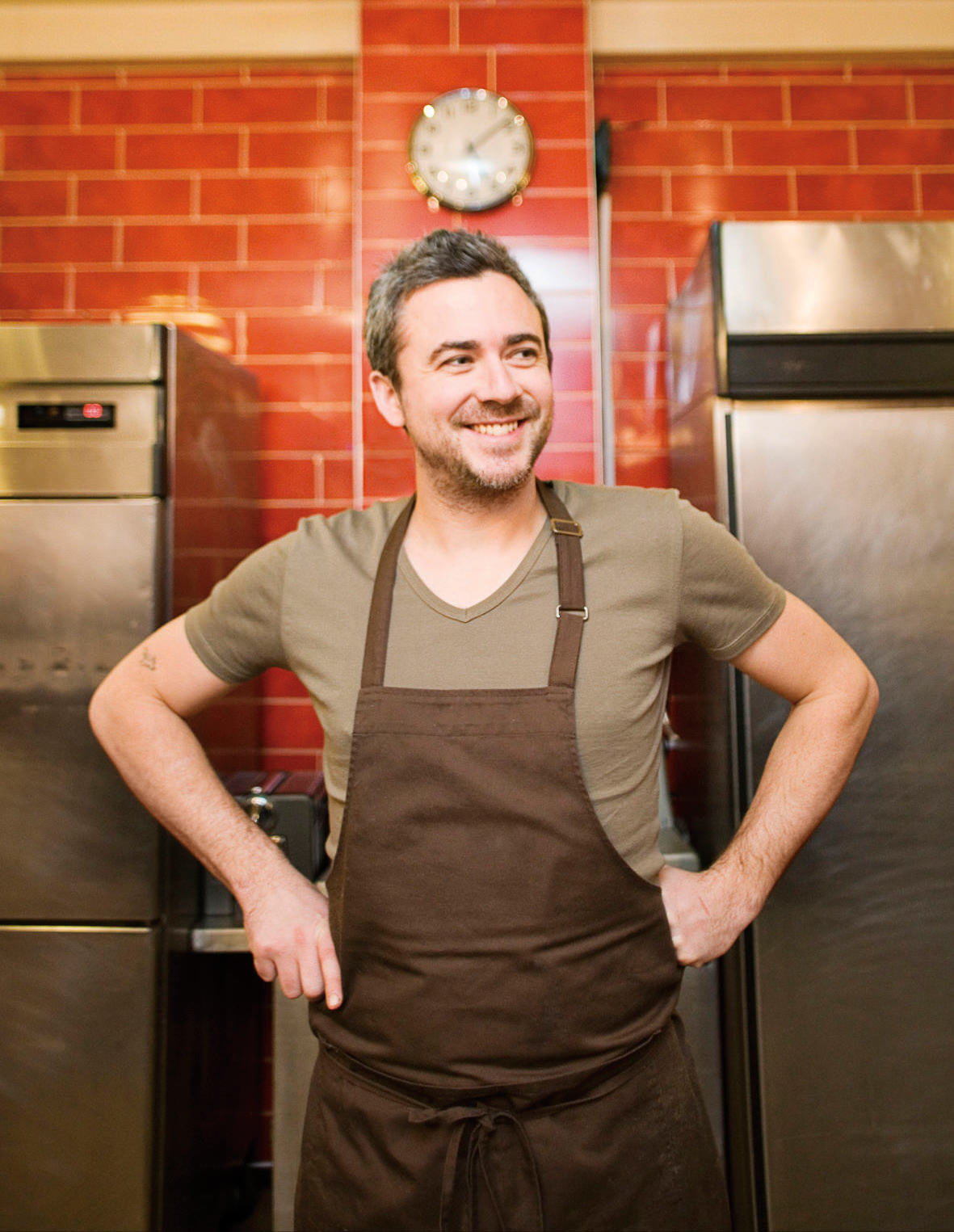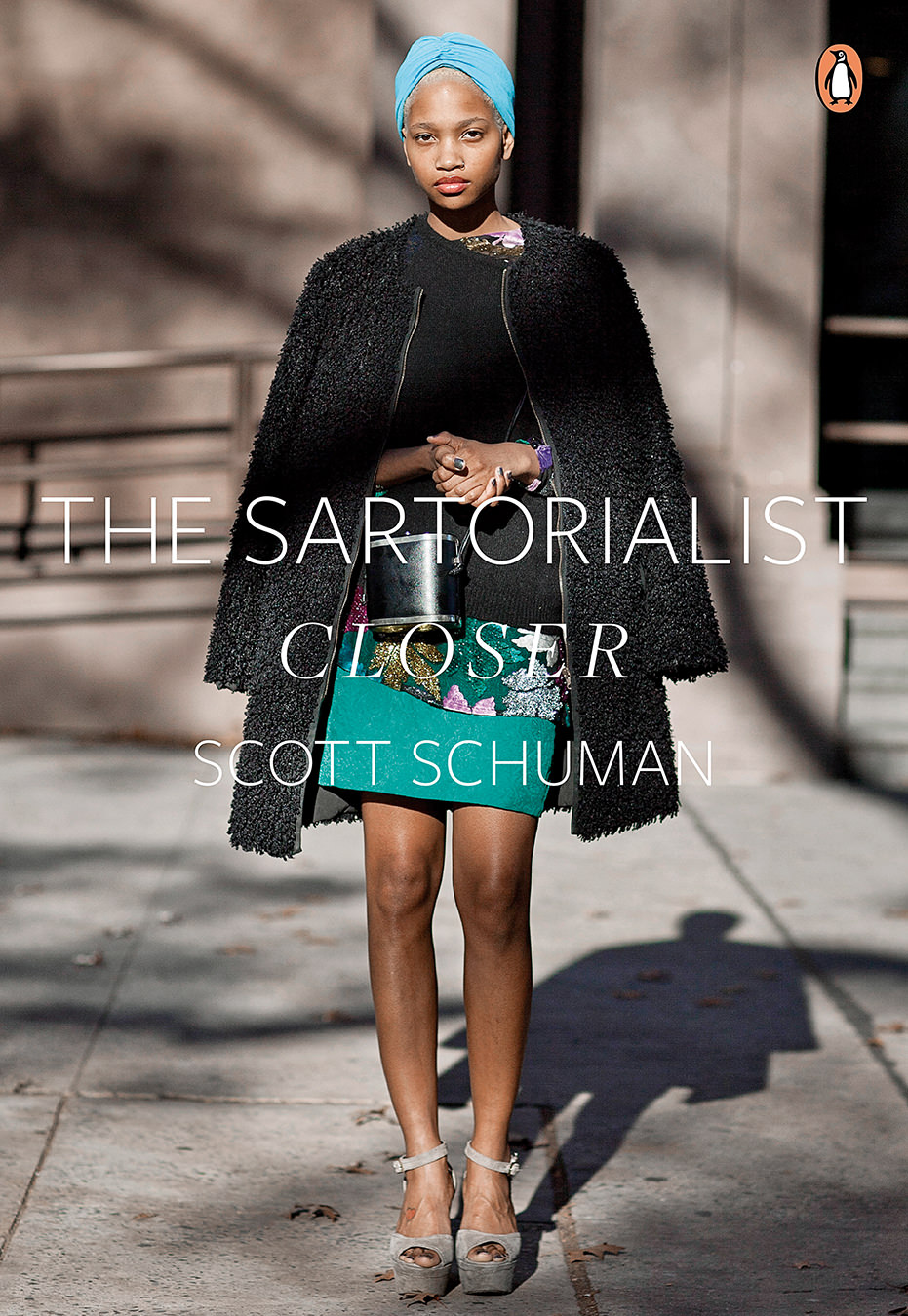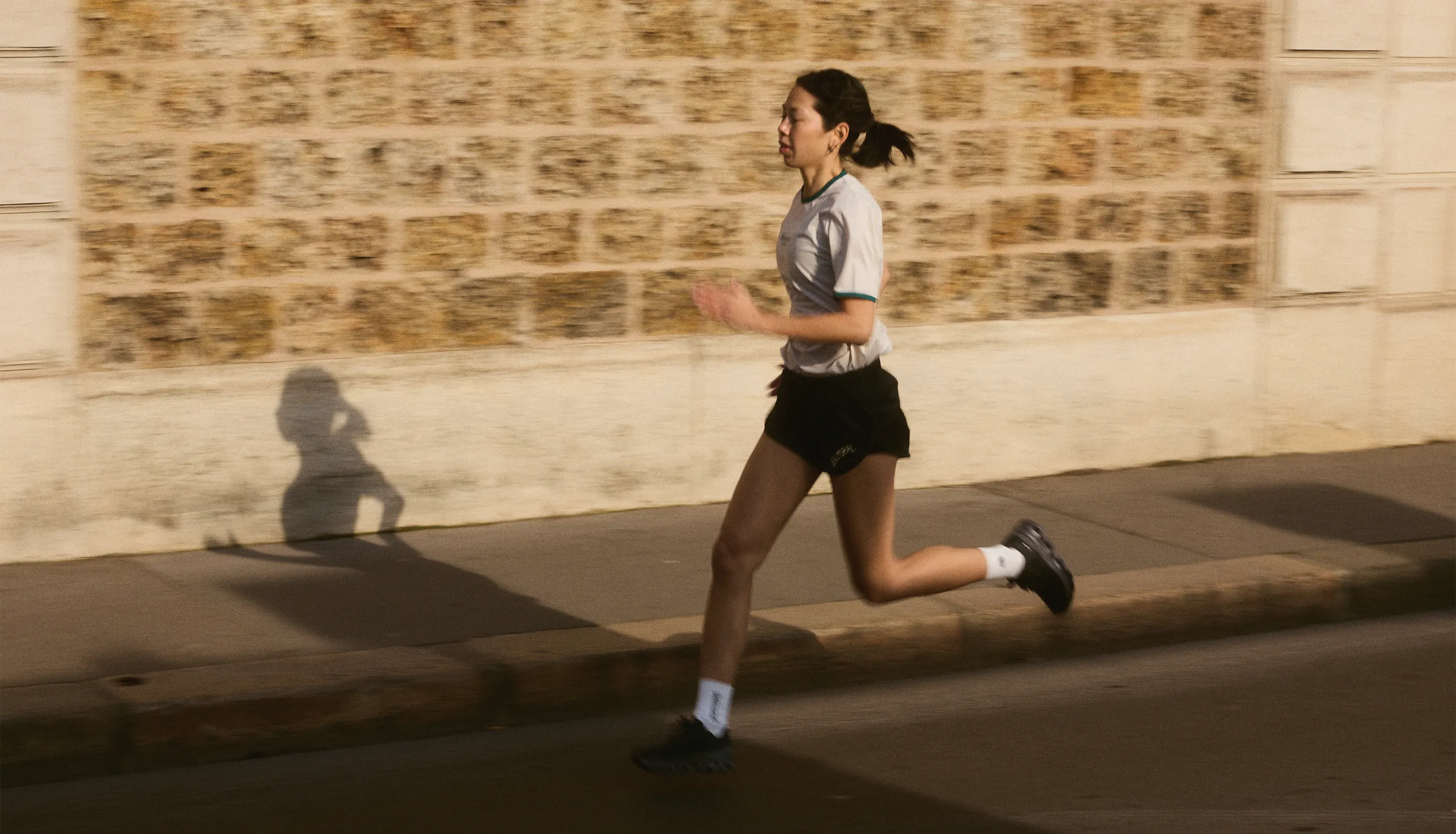
Montreal’s Balmoral Is a Canadian-Made Running Brand That’s Just Hitting Its Stride
The pacesetters.
Starting a fashion label is hard. Starting one that’s proudly made in Canada—down to the last stitch—is even harder. But knowing all that, Martin Boulais and Nicolas St-Pierre didn’t let it stop them. The duo behind Balmoral, the Montreal-based sportswear and running brand, knew what they were getting into. Launching a label where everything from the first sketch to the final shipment is handled in-house is a challenge both creative and logistical: slim margins, long hours, and a constant battle to stay ahead of shifting tastes, not to mention the countless moving parts behind the scenes. Boulais and St-Pierre are the designers, shipping department, customer service team, quality control, and—depending on the day—run club support crew. Their all-in approach is more than just resourceful—it’s also a reflection of their commitment to doing things the right way, even when it’s the hard way.
Their backgrounds check out. Boulais came from marketing and event production. St-Pierre cut his teeth at Ssense and the Quebec skate staple Empire. Both were immersed in skate, snowboard, and surf culture—worlds where gear, identity, and community are often intertwined.
Those early influences set the foundation, even if they didn’t know exactly where it would take them. Both founders envisioned starting a fashion brand, and when they crossed paths as roommates in Montreal, the idea of building something together seemed natural. Their shared sensibilities naturally pointed toward one concept in particular: Canadian-made sportswear. But it wasn’t until Boulais began running in 2019 that the sport would become the clear focal point. In 2020, they released their first pieces: a quarter-zip fleece followed by simple printed tees.
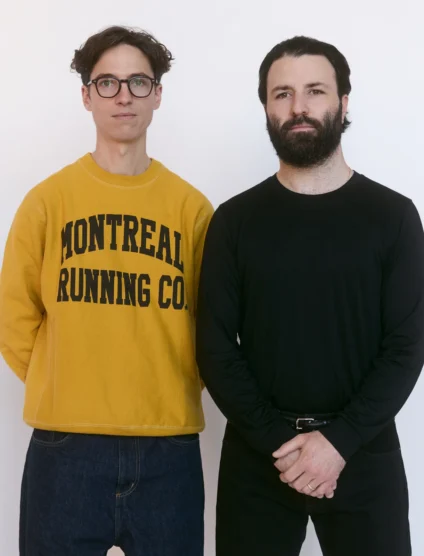
Around the same time, running was experiencing a cultural shift. As gyms closed during the early days of the COVID-19 pandemic, running surged in popularity as a solo, low-barrier way to stay active. When the world opened back up, these legions of new runners changed what was once seen as a solitary or performance-driven sport into a more social one—a way to connect with others. That shift helped crystallize Balmoral’s identity—not just as a brand for runners but also as part of running’s rise in popular culture. “The transition to running happened naturally,” St-Pierre says. “Martin was going to a lot of run clubs, and runners started noticing the gear and asking about it.” That’s when the duo realized there was something there. They admired what other brands were doing, particularly labels like Tracksmith, which helped redefine running style with a more nostalgic, heritage-inspired look. But there was nothing that was made in Canada that aligned with their preferred aesthetic. From there, their vision became clear: Canadian-made gear with a sharp, lasting look.
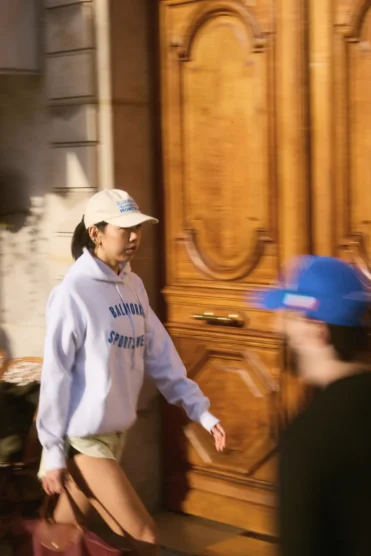
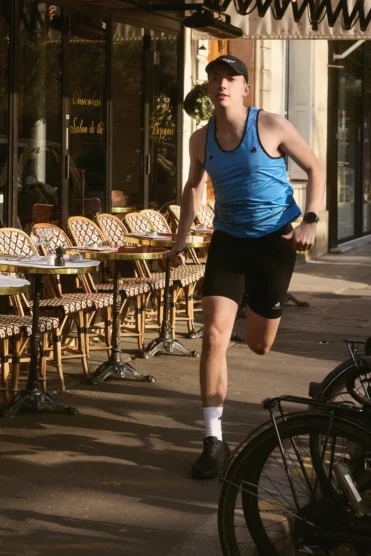
For Boulais and St-Pierre, that meant drawing on heritage references: university track team aesthetics, varsity fonts, and brighter colours than the usual black and grey workout gear. It’s a look that, while stylish, is also timeless. “We wanted to have a sustainable aspect to our designs, where something can last 10, 15, even 20 years,” Boulais says.
At the same time, as running grew as a hobby during the pandemic, more small running brands began to emerge. While the Nikes of the world lean into high-tech performance for top athletes, Balmoral taps into something quieter, more human. “We’re more community-based, and that might be our advantage,” St-Pierre says.
Long before “Buy Canadian” and “Elbows Up” became buzzy slogans, local manufacturing was already part of Balmoral’s approach. “We’ve always embraced being a Canadian-made, Montreal-based company,” Boulais says. “We have a tank top that says ‘Canadian Sportswear’ on it, and that was designed in early 2024, when there wasn’t any talk about tariffs or anything like that.”
“I think the tariff talk helps us make customers more aware of where their products are actually made,” St-Pierre adds. “Even some of our own friends assumed we were making our stuff in China. So if this recent shift gets people asking more questions about origin and quality, that’s a win for us.”
“Both founders envisioned starting a fashion brand, and when they crossed paths as roommates in Montreal, the idea of building something together seemed natural. Their shared sensibilities naturally pointed toward one concept in particular: Canadian-made sportswear.”
For Boulais and St-Pierre, it’s not just about waving a flag—it’s also about transparency, accountability, and building something that reflects their values. Being Canadian-made allows them to support local talent and manufacturing along the way. It’s a slower, more intentional method of working—but for Balmoral, it’s the only way that makes sense.
Canada has a solid network of clothing manufacturers. Even U.S. brands like Supreme and Aimé Leon Dore have long produced garments here—especially for fleece and cotton—but committing fully to being Canadian-made still comes with real trade-offs.
Every garment begins with a roll of fabric. From there, it’s a hunt to track down the right zippers, elastics, reflective trims—each detail sourced individually. It’s a slow, hands-on process: time-consuming, expensive, and logistically draining. They could cut costs, and headaches, by outsourcing to China, where sourcing, manufacturing, and embroidery happen under one roof. But for them, that’s not the point.
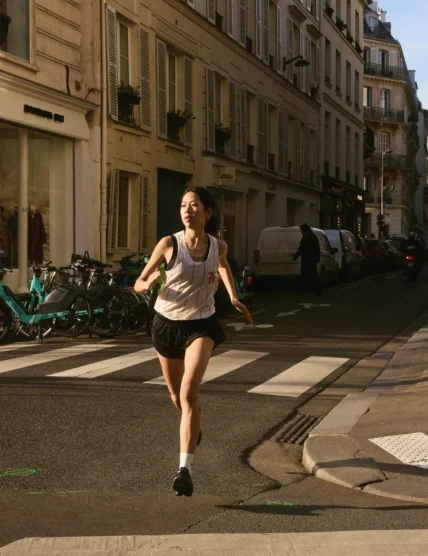
“Developing and sampling in Canada is so much more complicated and costly,” Boulais says. “What might take a month elsewhere can take three to four months here. And if the samples aren’t right, we miss our production timelines—that creates major delays.” Still, Balmoral remains committed to keeping production local. “If we can make it in Canada, we will,” he says. That commitment requires constant evaluation. “It’s always a balance,” St-Pierre adds. “If a running-specific piece is going to cost the customer $150 to make it in Canada, we have to ask ourselves—does that feel like the best or most sustainable choice for the customer?”
The way Boulais and St-Pierre have built community has also been a big driver of their success—whether in Montreal, Toronto, or beyond. With each of their two annual collections, they host a pop-up in Montreal, transforming a space into something unexpected: a concept store or a café. Last year, they partnered with the beloved Italian restaurant Elena for their now-annual wine run, a summer tradition where a race ends with a glass of wine at the finish line. One season, they even collaborated with that same restaurant to run the pop-up as a working pizza parlour, slinging pies post-run.
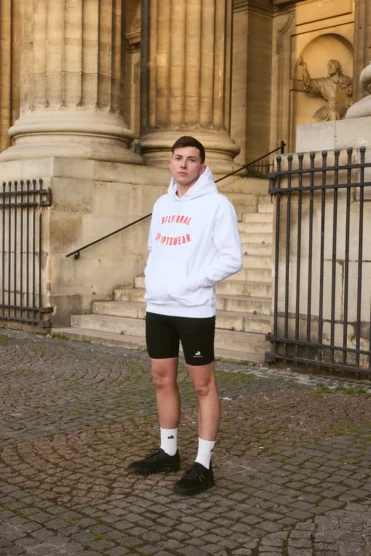
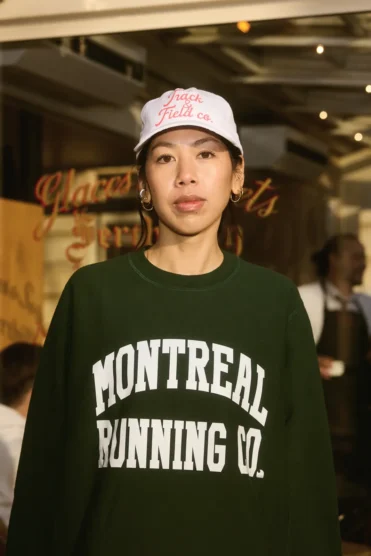
They bring the same energy on the road when collaborating with their retail partners. In Toronto, at the independent running shop Culture Athletics, Balmoral has hosted shakeout runs and cheer stations during the city’s marathons, as well as a casual in-store happy hour. In Quebec City, they went a step further, hosting a Full Moon Run, an unsanctioned nighttime race through the city with another indie shop, Faux Mouvement. Everything nods to community, culture, and doing things a bit differently.
This community commitment is analogous to their one to the business itself. For now, there’s no VC money, no hyped drops, no outsourced creative—just two guys who are focused on the bigger picture. “We don’t want to be here for two or three years, sell a lot of products, and get out,” St-Pierre says. “The goal is to be an established brand in the long term.”
While much of the industry races at breakneck speed, Balmoral is pacing itself with a steady, deliberate stride, proving that Canadian-made isn’t just possible—it’s also powerful.


